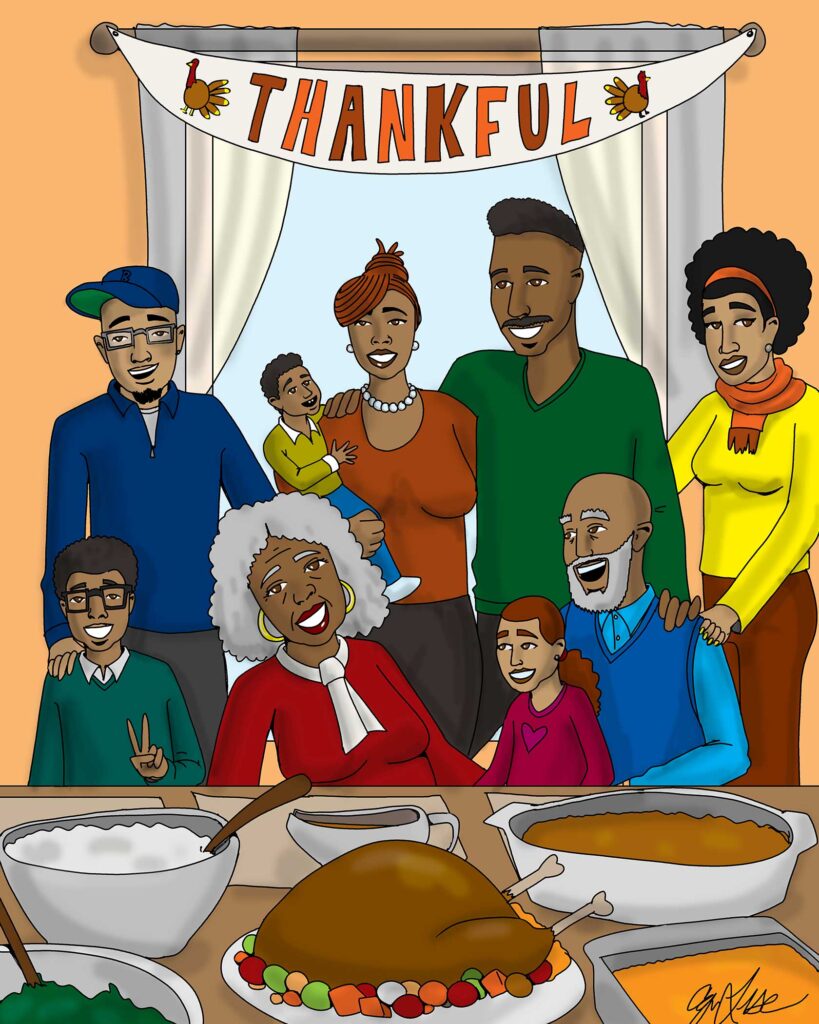
Every year many families gather around the table for a Thanksgiving meal. For some it’s a time to reconnect and reflect about what they can be hopeful and happy for. For others, it’s a way to think about and seek out the less fortunate while discovering how to give those people a way to enjoy the day. This core belief is a tenet of Native American cultural ideals surrounding Thanksgiving — a day of giving without expecting anything in return. This national holiday also falls in November, which is celebrated as Native American Month as well. In the first celebration of this holiday, with the colonists, the Wampanoag tribe provided needed information about agriculture and hunting as well as food for the group celebration. However, many Indigenous people consider this a day of mourning. People rally at Cole’s Hill in Plymouth for an organized service of remembrance. Further, most people do not realize that the following day, referred to as Black Friday, a retailing extravaganza, is also celebrated as Native American Heritage Day.
This 4th Thursday of the month has always been complicated for many Indigenous peoples, given its association with the colonization and genocide of Native Americans. For Black Americans, the holiday often carries its own complex history, tied to slavery and the systemic oppression of African descendants. This tension between the myth of the Pilgrims’ peaceful feast and the reality of colonial violence and exploitation often leads to calls for a more nuanced understanding of the holiday.
Black families can relate to many facets of the Native American narrative.
Thanksgiving in the Black community can be a deeply meaningful and culturally rich celebration. While the holiday itself has roots in Native and colonial American history, African American traditions surrounding Thanksgiving often blend elements of family, food, faith, and community, all shaped by the history and experiences of people of color.
According to the African American Registry, “Thanksgiving expression for the American Black community began as a church-based celebration. Black pastors often gave sermons that could be heard loud and clear through the many small Black churches. The sermons would be about struggles, hopes, fears, and triumphs. The sermons usually grieved the institution of slavery; the suffering of the Black people; and often pleaded that an awakening of a slave-free America would someday come soon.”
On November 30, 1876 (Thanksgiving), African Methodist Episcopal cleric Reverend Benjamin Arnett did just that to a predominantly Black congregation with the following words, “We call on all American citizens to love their country and look not on the sins of the past, but arming ourselves for the conflict of the future, girding ourselves in the habiliments of Righteousness, march forth with the courage of a Numidian lion and with the confidence of a Roman Gladiator, and meet the demands of the age, and satisfy the duties of the hour.”
This is now a time to come together, with generations sharing meals, stories and anecdotes. There will be a special sense of togetherness and unity that extends beyond the immediate family in 2024. Given the results of the election, November 28 will be part of the continued struggle for equality, recognition and healing from what most Black and brown people feel is a huge sense of loss. For a large part of the country, it’s hard to understand that this election celebrated the re-emergence of a convicted felon who used his position to again denigrate a variety of people he deems as “less than.” A quick look at the electoral landscape shows that a large part of each coast is dark blue while the rest of the United States glows red. Many of us didn’t want to emerge from our homes because of this election, but now we need to come together and talk about how we move forward as a group. Along with the turkey, collards, sweet potato pie and cornbread, there needs to be an openness of how we are feeling and what we are thankful for despite the shortcomings of this year.
We at the Banner are thankful for our great staff who have committed to put out a paper every week without fail. Our writers, Yawu Miller, Avery Bleichfeld, Mandile Mpofu, Deirdre Montague, Celina Colby, Olivia Grant, Jimmy Myers, Scott Haas, Susan Saccoccia, Jack Drewry, Bill Banfield, Malia Lazu, Jordyn Britton, Rachel Amster, Eloise Binder, Gabriel Martins and Karen Miller; all work diligently behind the scenes.
Our managing editors, Jamyra Perry, Meghan Irons, Brian Wright O’Connor and Ken Cooper do the same.
We thank our copy editors Anthony Neal, Sanda Larson and Dorothy Clark. Our accountant Joe Wheeler; our production staff Joanne Storin, Carole Allen, Cagen Luse, Ron Wilhelmsen, Joe Johnson, Mike King, Dillard Morrison, Lori Morrison, Max Cyril and Ron Milton. All deserve praise.
Our sales and marketing team, are Colin Redd, Rachel Reardon, Pat Bonner Duval, Lyn DuVal Luse and Maliaka Shepherd. We owe them all a debt of gratitude.






